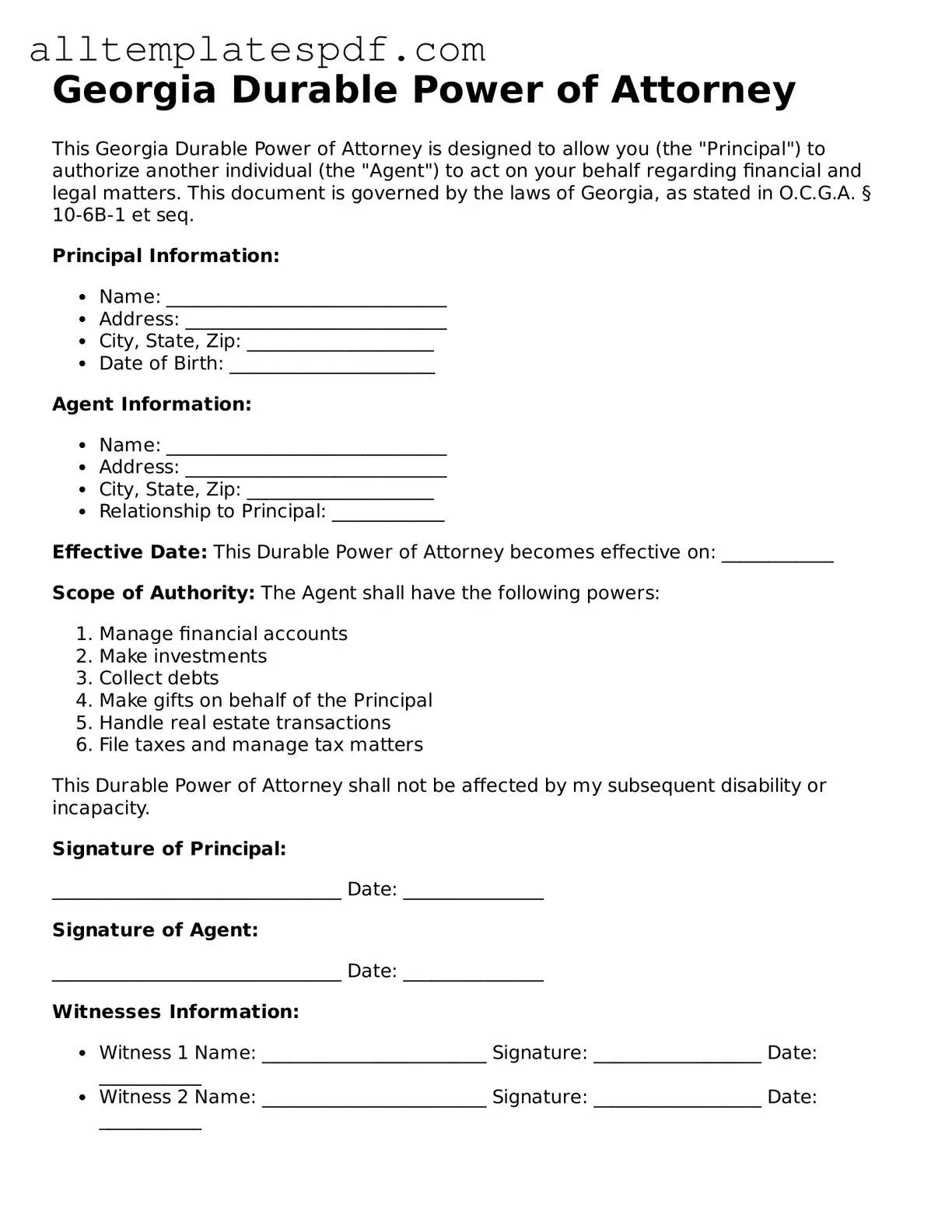Filling out a Durable Power of Attorney (DPOA) form in Georgia is a significant step in planning for the future. However, many individuals make common mistakes that can undermine the effectiveness of this important document. One frequent error is failing to clearly identify the agent. The agent is the person authorized to make decisions on behalf of the principal, and ambiguity in naming this individual can lead to confusion and disputes.
Another mistake involves neglecting to specify the powers granted to the agent. The form should clearly outline what decisions the agent can make, whether they pertain to financial matters, healthcare, or other areas. Without this clarity, the agent may not have the authority to act in the principal's best interest when needed.
Some individuals also overlook the necessity of signing the form in the presence of a notary public. In Georgia, notarization is essential for the DPOA to be considered valid. Failing to obtain this notarization can render the document ineffective, leaving the principal without the intended legal protections.
Moreover, individuals may mistakenly believe that a DPOA remains valid indefinitely. While a Durable Power of Attorney is designed to remain effective even if the principal becomes incapacitated, it does not last forever. It is crucial to review and update the document periodically to ensure that it reflects current wishes and circumstances.
People often neglect to discuss their intentions with the chosen agent. This oversight can lead to misunderstandings about the principal's wishes. Open communication ensures that the agent understands the principal's preferences and can act accordingly when the time comes.
In addition, failing to consider alternative agents can be a significant mistake. It is wise to designate a backup agent in case the primary agent is unable or unwilling to fulfill their responsibilities. This precaution helps avoid potential complications during critical moments.
Another common error involves using outdated forms. Legal documents can change over time, and using an old version of the DPOA may not comply with current laws. Always ensure that the most recent form is being utilized to avoid legal pitfalls.
Some individuals also forget to provide copies of the signed DPOA to relevant parties. It is important for healthcare providers, financial institutions, and family members to have access to this document. Without copies, the agent may face difficulties in exercising their authority when necessary.
Finally, many people fail to consider the implications of their choices. A DPOA grants significant power to the agent, and it is essential to choose someone trustworthy. Thoughtful consideration of the agent's character and reliability can prevent future conflicts and ensure that the principal's wishes are honored.

